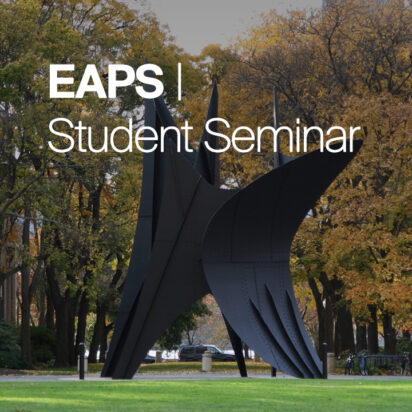
[ESAC Student Seminar] Alex Cabanelas
Date: Thursday, October 24, 2024 Time: 12:00 - 1:00pm Location: 54-209 M. Nafi Toksöz Seminar Room | MIT Campus, Cambridge, MA“Latitudinal Variability and Long-Term Responses of Zooplankton to Climate Forcing Across Four LTER Sites”
Pelagic marine ecosystems exhibit varied responses to both stochastic and long-term environmental changes, but the mechanisms driving these responses are not fully understood. Long-Term Ecological Research (LTER) sites provide invaluable long-term data across latitudinal gradients, enabling cross-site comparisons. Here, we analyze pelagic populations across four marine LTER sites—Northeast U.S. Shelf, California Current Ecosystem, Northern Gulf of Alaska, and Palmer Antarctica—to investigate how zooplankton respond to climate forcing. We test whether mechanisms observed in the CCE, in particular the Double-Integration Hypothesis, apply to other marine ecosystems and help explain distinct patterns in community composition and structure across varying timescales. This hypothesis suggests that cumulative integrations of white-noise atmospheric forcing drive long-term population variability. Using over 40 years of time-series data for taxa spanning copepods, euphausiids, and pteropods, we find varying degrees of support for the Double-Integration Hypothesis across sites, considering indices such as the Pacific Decadal Oscillation, the El Niño-Southern Oscillation, and the Gulf Stream Index. This work reveals similarities and unique responses, highlighting the importance of a latitudinal perspective in understanding marine ecosystem responses to physical climate forcing. Understanding how pelagic populations respond to changing conditions and the drivers of long-term variability is crucial for effective ecosystem management due to the vital role of plankton in marine ecosystems.
ESAC Student Seminar Series —
A forum for students and postdocs to share recent research, hone presentation skills, and build community among peers, sponsored by the EAPS Student Advisory Committee. Open to current EAPS graduate and undergraduate students and postdocs. Typically hosted on Thursdays during the semester, including pizza lunch.
Contact: esac.officers@gmail.com
